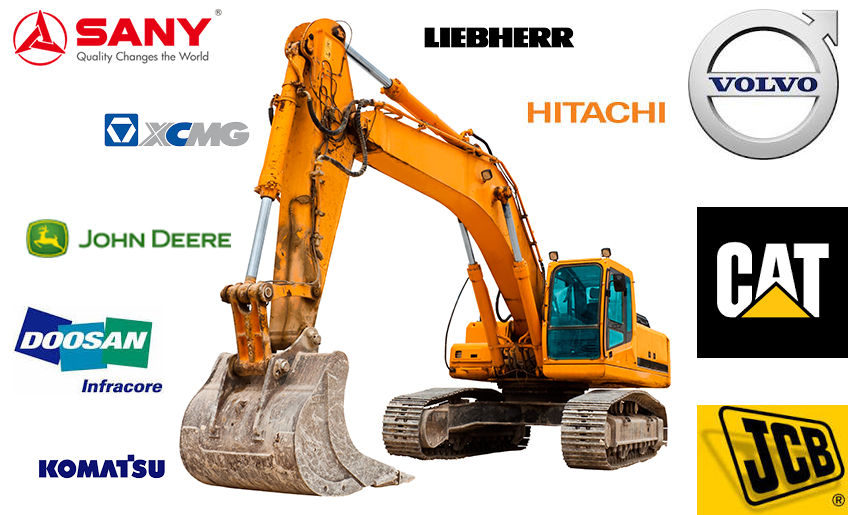Reliable Construction Equipment Rentals: Rent Scissor Lifts, Boom Lifts, and More from Us
Reliable Construction Equipment Rentals: Rent Scissor Lifts, Boom Lifts, and More from Us
Blog Article
Vital Tips for Managing Heavy Devices Rental Contracts and Logistics Properly
Successfully handling hefty tools rental contracts and logistics is important for the success of any type of project that relies on these resources. A comprehensive understanding of rental terms, coupled with specific evaluation of tools requirements, lays the structure for favorable arrangements.
Understand Rental Terms
Comprehending rental terms is vital for effective heavy equipment management. The rental duration specifies the duration for which the tools is leased, influencing budgeting and project timelines.
Additionally, it is crucial to understand the maintenance commitments detailed in the agreement. Normally, rental firms keep the equipment, however comprehending that is responsible for regular checks and fixings is essential to stop operational disturbances. In addition, terms might consist of clauses worrying obligation for damages or burglary, which can have significant monetary ramifications otherwise effectively understood.
Assess Equipment Needs
Evaluating devices demands is a crucial action for any kind of task manager intending to optimize resource allocation and enhance operational efficiency. This process includes a comprehensive assessment of the task demands, consisting of details tasks, timelines, and the type of equipment necessary to achieve desired end results.
Begin by recognizing the extent of the task and the jobs that will be carried out. Think about elements such as the terrain, the scale of operations, and any kind of possible difficulties that might influence equipment selection. Involving with team members that will operate the equipment can supply useful insights right into functional demands and choices.

Following, assess the capacity and abilities of available devices options. It is vital to match the ideal equipment to the jobs at hand, ensuring that it can manage the expected workload without endangering security or efficiency.
Additionally, consider the rental duration and regularity of usage. Comprehending these components can aid establish whether leasing or acquiring is one of the most cost-efficient option. By performing an extensive analysis of devices needs, task supervisors can make enlightened decisions that cause boosted productivity and minimized functional prices.
Negotiate Successfully
Once the equipment needs are clearly identified, the next step entails reliable arrangement with rental firms to safeguard desirable terms. Begin by looking into numerous rental business to comprehend their pricing structures, supply schedule, and online reputation.
When coming close to that site the settlement table, be clear regarding your demands, including the kind of equipment, rental period, and any kind of extra services you might require. This transparency enables rental firms to give tailored services that can fulfill your details requirements (forklift rental). Do not be reluctant to ask for price cuts, particularly for long-term services or bulk orders, as several business agree to supply giving ins to secure bigger contracts
These variables can dramatically influence the overall price and should be clearly laid out in the rental agreement. Make certain that all agreed-upon terms are documented in writing to protect against misunderstandings and safeguard your rate of interests throughout the rental duration.
Coordinate Transport Logistics
Collaborating transport logistics is an essential element of taking care of heavy equipment rental agreements. Efficient transport ensures that equipment is supplied on time and in optimum condition, consequently decreasing downtime and improving task efficiency. To achieve this, it is vital to establish a thorough logistics prepare that lays out the whole transport procedure from pickup to delivery.
Begin by examining the certain transport requirements based on the kind and size of the tools involved - dozer rental. Involve with reliable transportation suppliers that concentrate on hefty equipment to guarantee they have the required experience and devices, such as flatbed vehicles or specialized trailers. Discuss factors such as weight restrictions, path restrictions, and required licenses to prevent unforeseen delays
Additionally, preserve open communication with both the rental business and the transport supplier to coordinate routines properly. By meticulously working with transportation logistics, you go now can maintain the integrity of your rental arrangement and assist in smooth task execution.
Strategy for Upkeep and Assistance

In addition, it is essential to communicate directly with the rental copyright regarding upkeep responsibilities. Some contracts might include maintenance as component of the rental solution, while in other instances, the onus may drop on the occupant. Recognizing these terms will certainly help prevent unanticipated costs and responsibilities.
In enhancement, having accessibility to technological support can be indispensable. Guarantee that the rental business uses 24/7 assistance or an emergency situation contact, enabling speedy resolution of any kind of equipment concerns. Training your group on correct devices use and regular checks can also dramatically enhance operational performance.
Final Thought
To conclude, reliable management of heavy tools rental agreements and logistics rest on a comprehensive understanding of rental terms, exact evaluation of devices demands, and proficient negotiation skills. Working with transportation logistics and preparing for upkeep even more improve functional effectiveness. By implementing these methods, companies can minimize threats, control prices, and guarantee that tasks progress smoothly and within well-known timelines. Highlighting clear communication with all stakeholders stays important in navigating the intricacies of tools leasing and logistics management.
Efficiently managing hefty tools rental contracts and logistics is critical for the success of any type of job that counts on these sources. By extensively assessing and recognizing these rental terms, organizations can make informed decisions, mitigate threats, and make sure that their hefty tools administration straightens with project goals and economic restrictions.Working with transportation logistics is an essential element of managing hefty tools rental contracts.In verdict, efficient monitoring of heavy equipment rental agreements and logistics hinges on a comprehensive understanding of rental terms, specific evaluation of devices requirements, and skilled arrangement skills. Highlighting clear communication with all stakeholders remains essential in navigating the intricacies of devices service and logistics management.
Report this page